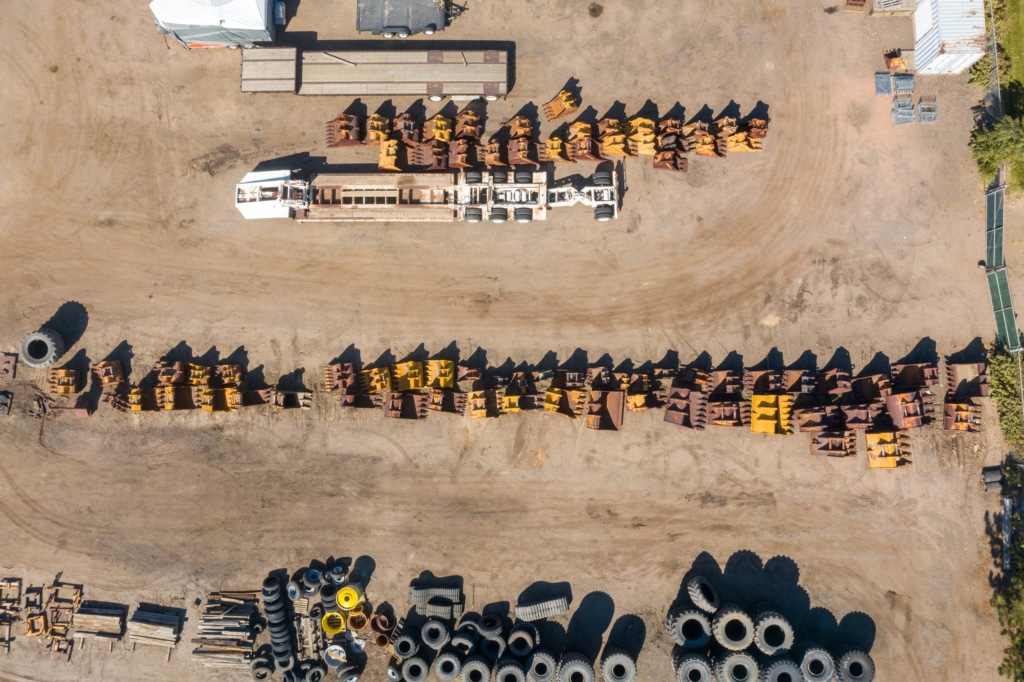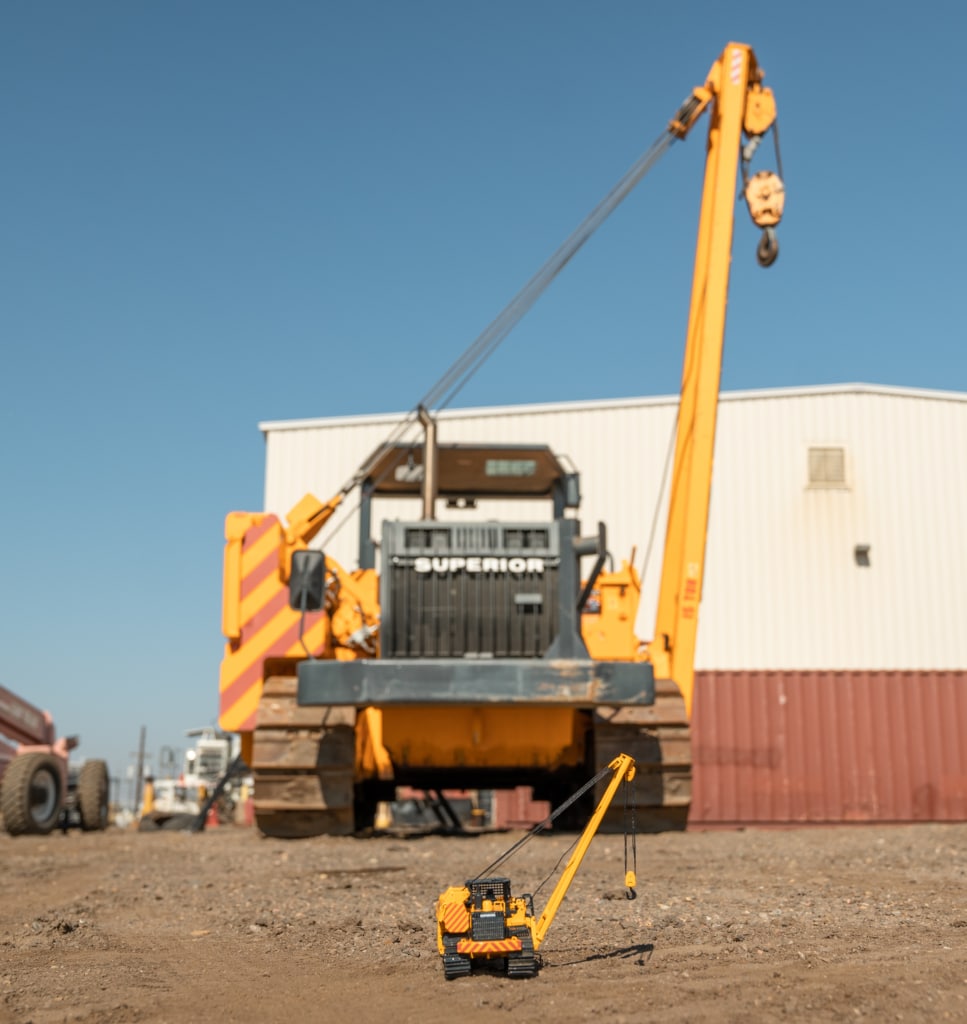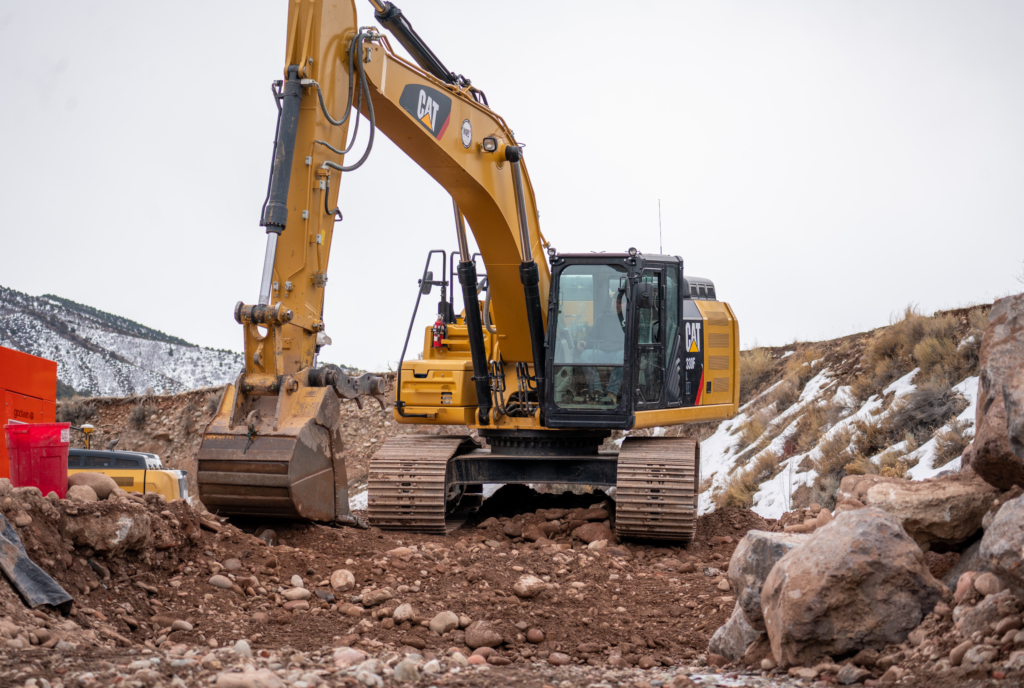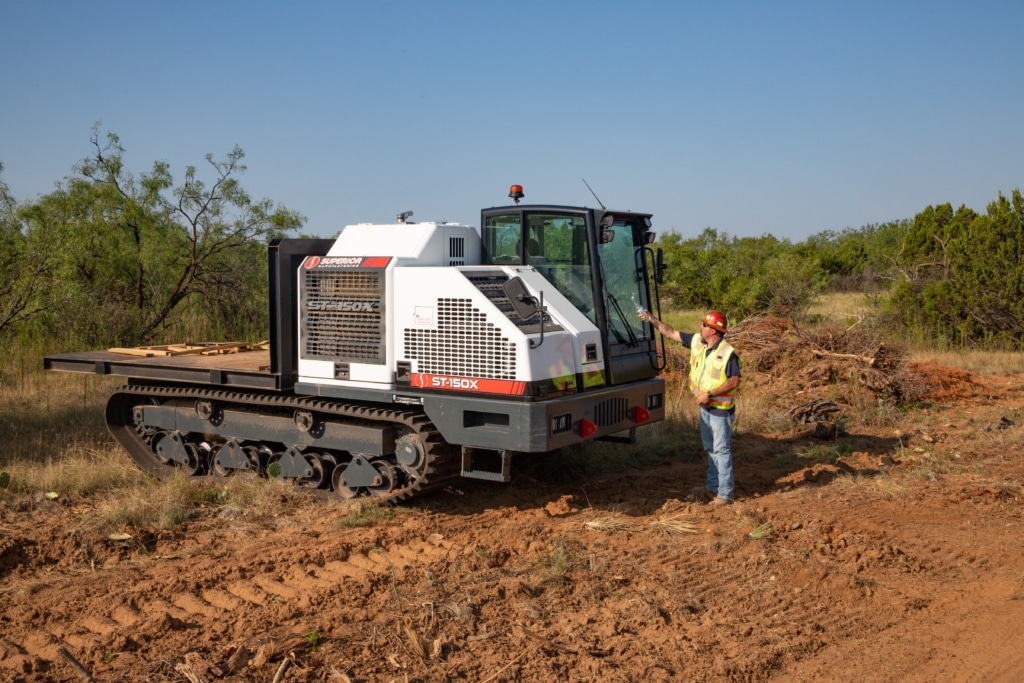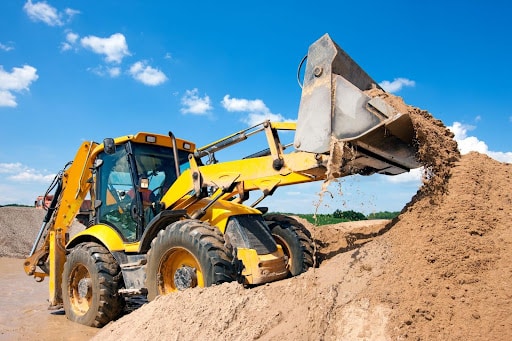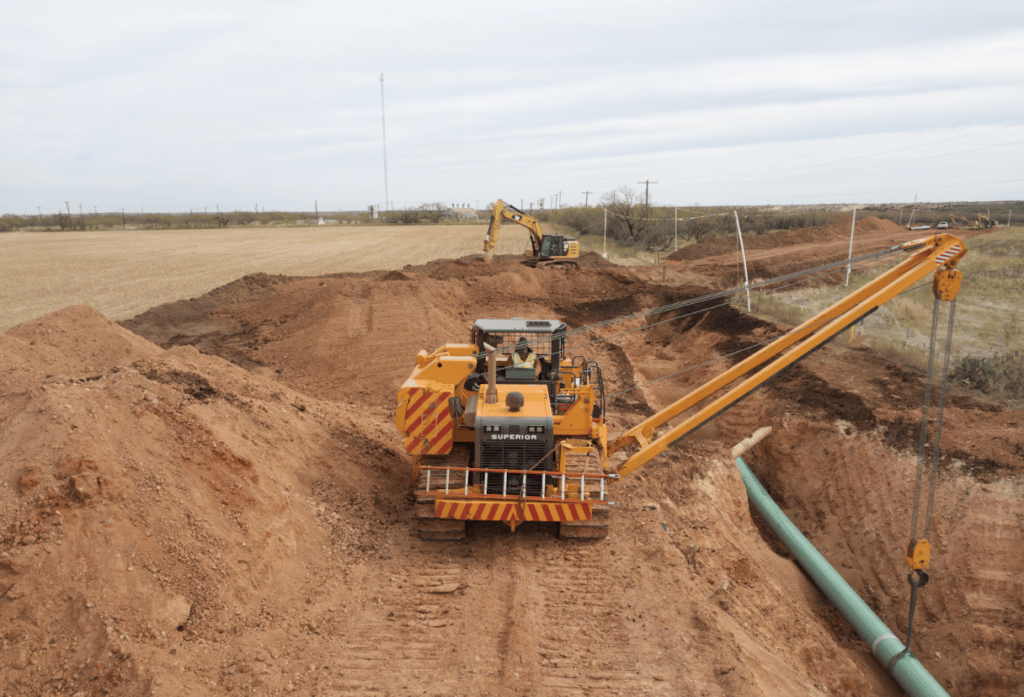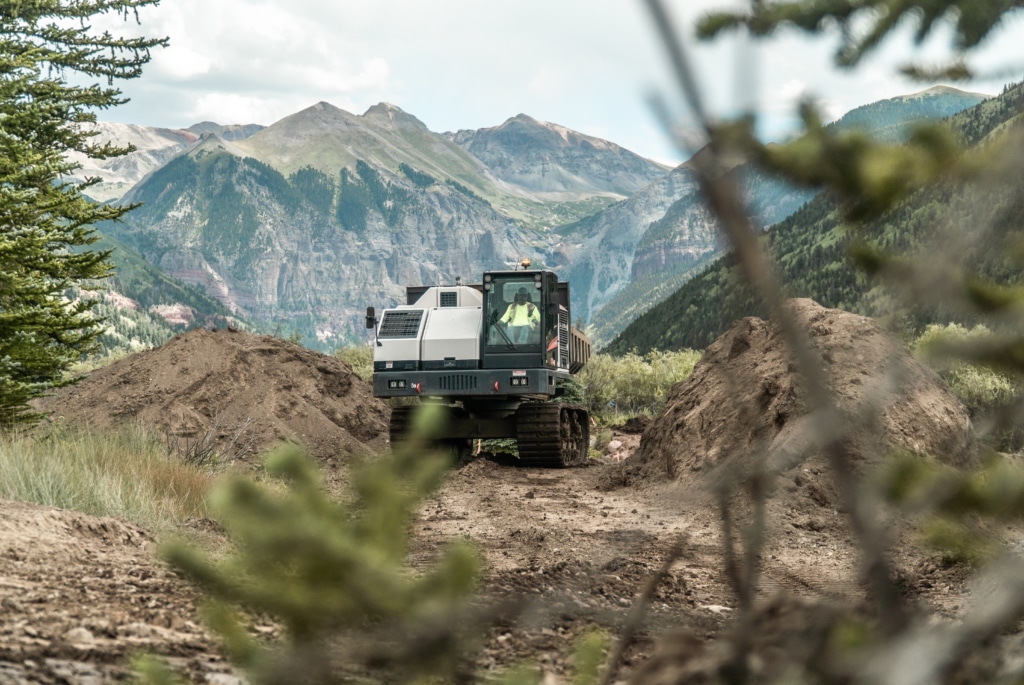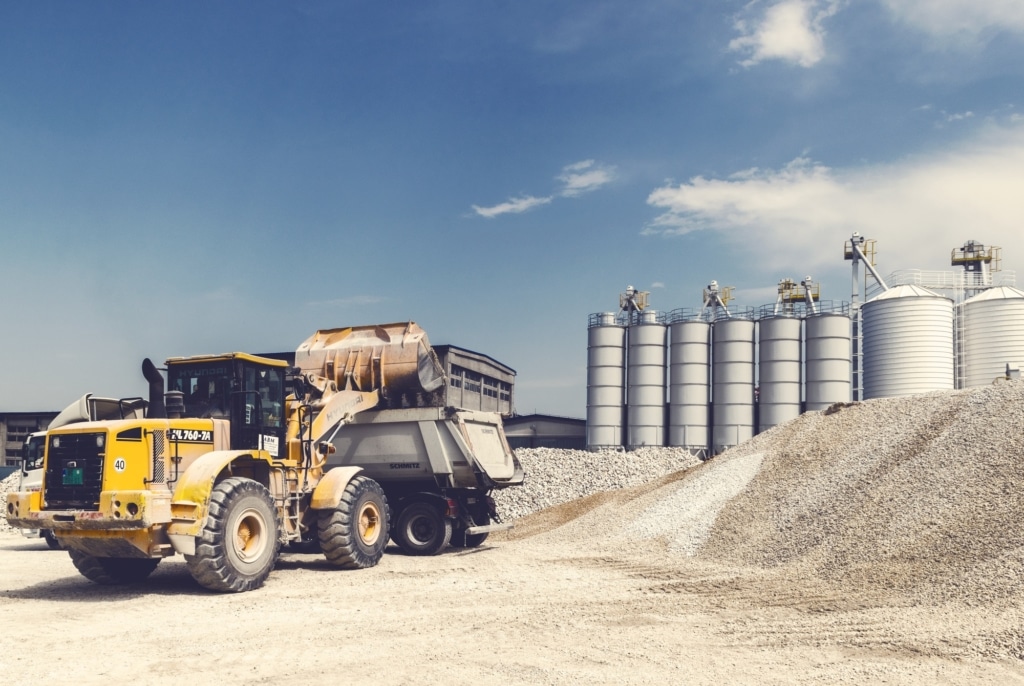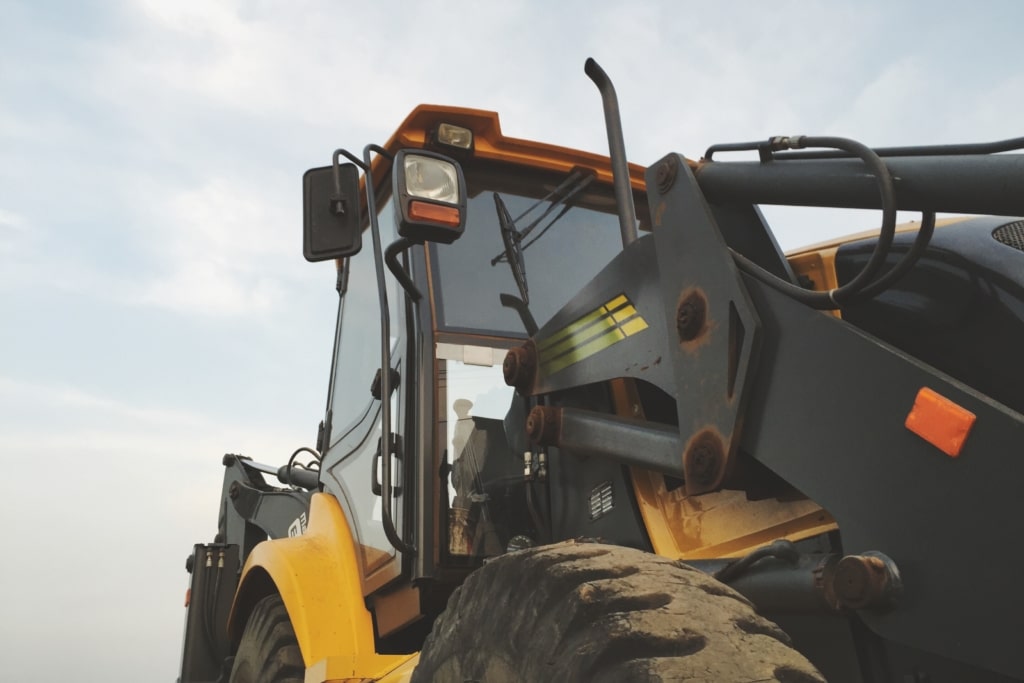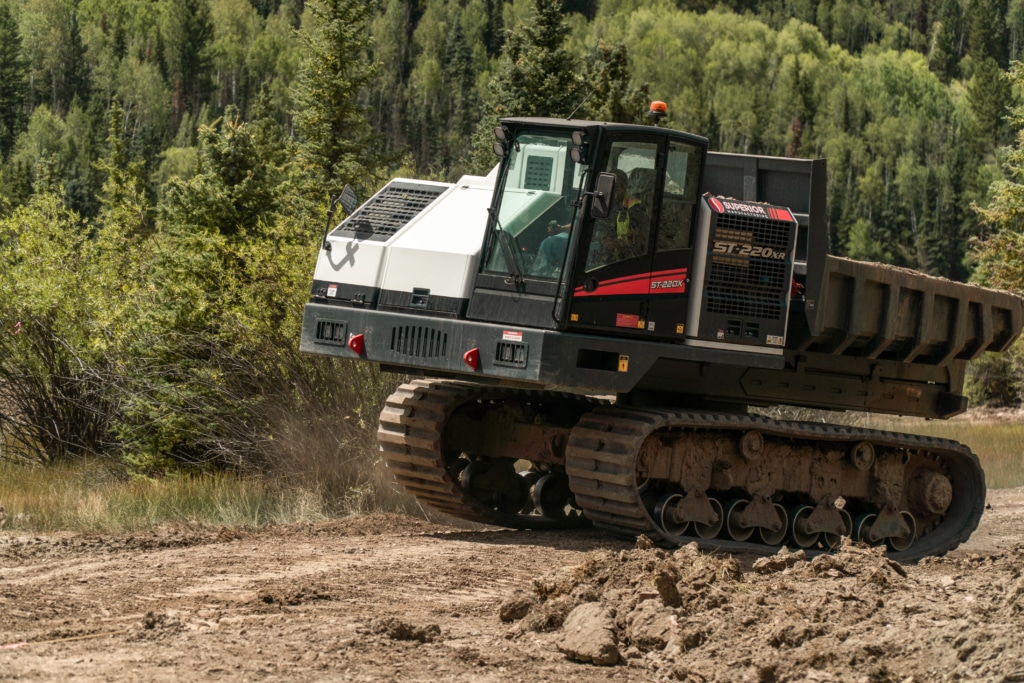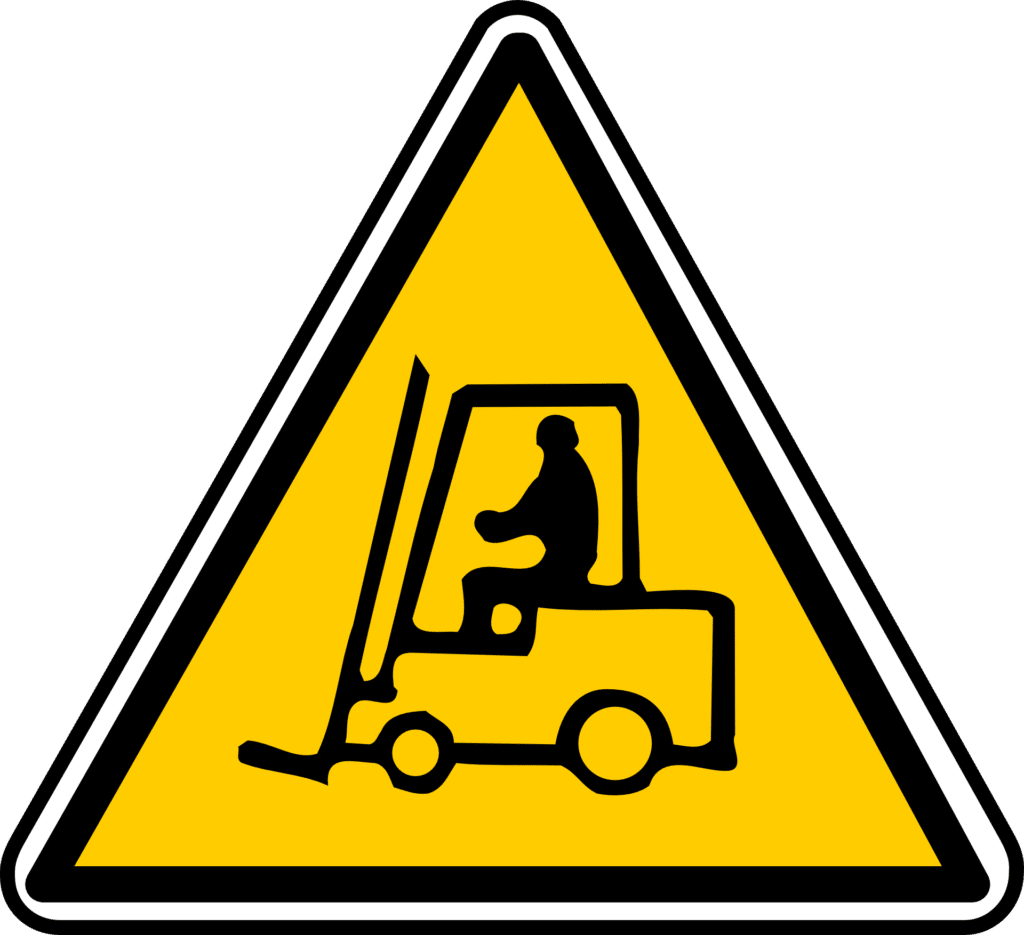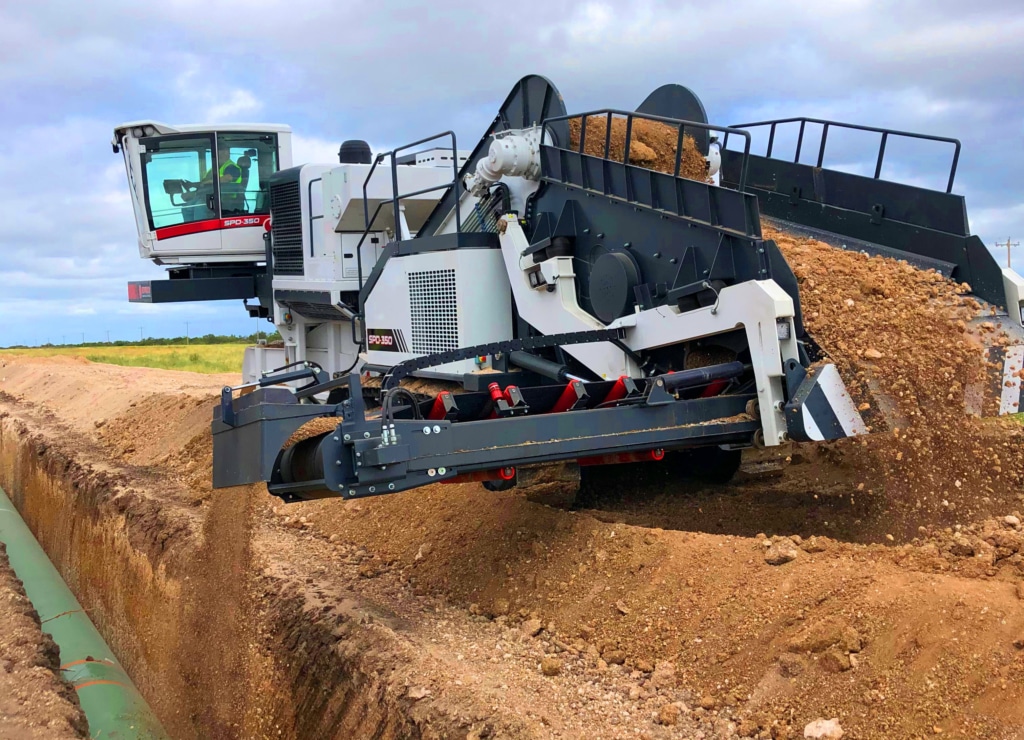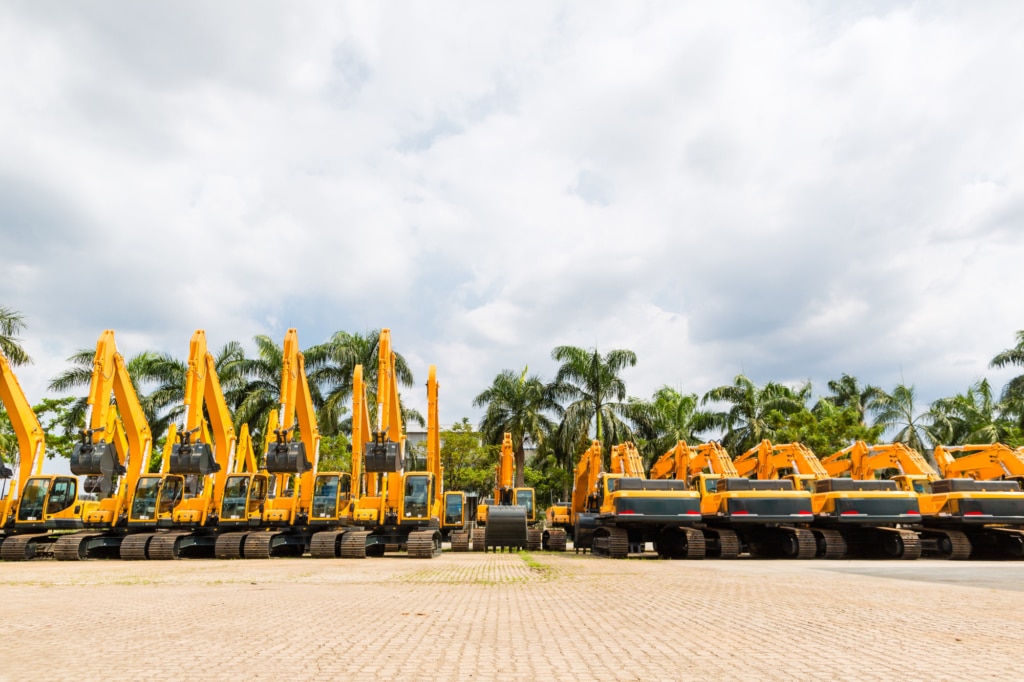The average delay on a construction project has doubled since the pandemic. Pre-2020, the average project was delayed by 100 days. Now, the average is a staggering 200 days, or over 6 months.
Even as we emerge from the pandemic, new world events are causing even more chaos for supply chains. It is now more crucial than ever to work with companies you can trust to stay on time and on target. They help you keep your competitive edge by keeping projects on track, so you can deliver to your clients on time.
What should you look for in heavy equipment suppliers? We’ve curated this guide to help you with the process.
The first step is identifying your needs. As an organization, you should know what you expect from a supplier.
Then, you need to measure up the supplier against industry standards. How do they compare to their competitors in reputation, fleet size, and service?
Once you find the answers, you can partner with a supplier with confidence. Read on for more details about what you need to establish, and what you should be looking for.
Key Considerations Before Choosing Heavy Equipment Suppliers
Before you start your search, it’s essential you outline your requirements. Only with your short and long-term parameters established can you find a supplier that can meet them. Here are the most important areas to nail down before choosing a heavy equipment supplier.
Specifying Equipment Needed
The first step is outlining the amount of equipment you’re looking to use and its purpose. As far as possible, create a detailed rundown of which machines you need. Narrow down how flexible you are willing to be on the equipment specifics.
For example, each industry, from construction to renewables, has its own specialized equipment. Do you only want to work with a brand you already know when it comes to this equipment, possibly making maintenance simpler over your operation? Or are you willing to consider whichever brands suppliers have available if it will save on cost?
Specify Your Timeline
After defining these parameters, consider how flexible you are on timing. Do you need equipment just for one specific project, or do you want to increase your fleet size or variety overall?
This question narrows down your flexibility on lead times, as well as how long you’ll use the equipment for. For example, if you need to add machinery to your fleet just to upgrade your old machines, you may have more flexibility around timing, but have specific brands in mind. Conversely, if you need to rent equipment for just one large project that your fleet currently can’t handle, you likely have strict time considerations in mind.
Either way, establish as accurately as possible the number of each piece of equipment you’ll need. Then you have a specific amount to present to suppliers to receive quotes and time estimates. This allows for a more direct cost comparison and transparency around each supplier’s capability.
Desired Length of Working Relationship With Heavy Equipment Suppliers
For your upcoming equipment acquisition, how long do you plan to work with the supplier? If you only intend to purchase a few pieces of equipment and move on, the brand may be more important than the supplier. You want to work with a machine you can trust, regardless of where it comes from.
More likely though is a longer working relationship.
If you establish a partnership with a supplier, solving equipment issues is far more painless. Purchases have all the parts they need, rentals can be replaced over time. And you don’t have to waste time scouring the market when you need something in a pinch.
You already have a supplier you trust on speed dial, as it were. Whenever you need new equipment or help with equipment, even urgently, you can rely on your supplier.
If that better describes your situation, it’s worth investing time now to find a trustworthy partner. That is, one that provides best-in-class customer service and a single point of contact for all your needs.
Working Within Budget
Your budget dictates not just whether you purchase or rent, but which machinery you choose. If your budget is more restricted than you’d like, you may be inclined to work with cheaper equipment.
However, cheaper equipment is often older and simpler. It is less likely to be less efficient, requiring more fuel and ongoing costs. In that case, you could be costing yourself more in the long run.
It all depends on the manpower and funding available to you. If you can afford it, more expensive but efficient equipment may be a more budget-friendly investment.
New or Used
Once you’ve decided on the equipment you need, should you choose new or used?
New equipment is less likely to have any downtime on site, especially in the beginning. But a good supplier will have kept a strict maintenance schedule on their used equipment. So the real benefit of newer equipment then is its advanced design.
Brand new equipment uses the latest technology to improve productivity and efficiency. An older machine may be less productive and more prone to downtime.
Essentially then, it’s a trade-off for cash flow. Would you rather pay more upfront and save down the line? Or have less capital expense in the beginning, but pay more over time?
Your answer dictates whether used or new equipment is best for your business.
As it comes down to making a good investment, the decision also depends on the length of your project. If you want to use certain pieces of equipment only for a short time, new equipment may be overinvesting. More financially viable is working with used heavy equipment or simply renting equipment.
However, if you want the equipment to be part of your fleet, new equipment will pay for itself over time.
Purchasing Heavy Equipment
Another crucial question in the budget debate is whether to rent or buy your heavy equipment.
As explained, new equipment can be the most budget-friendly option in the long run. It helps you keep up with your competitors and the latest in equipment developments. This is especially true if you purchase your equipment.
Often, purchases of new equipment come with warranties, less common for used equipment. This ensures your investment lives up to its maximum potential while it’s newest. Warranties though will expire, and eventually maintenance falls entirely on the equipment owners.
That is why some construction companies also rent some equipment.
Renting Heavy Equipment
Renting equipment comes to mind for short-term projects; when a company requires machinery for just the length of the job, and won’t use it again afterward. But don’t overlook the benefits of renting equipment long-term.
If you rent some or all of your heavy equipment, maintenance falls under your supplier’s workload. Whenever inevitable issues arise with the machinery, you don’t have to handle it yourself. Instead, the supplier has to repair or replace the equipment.
This also makes it easier to keep up with modern heavy equipment technology. If you rent your equipment, you can upgrade from one machine to another as easily as possible. As soon as a new model becomes available, you can swap out your current rental for a more advanced model.
Rental also keeps your fleet flexible. You can scale up or down however you need; which is especially valuable if taking on a larger project than usual. You can rent all your equipment just for the project’s duration, then return to your normal fleet size.
Over time, equipment rental will likely cost you more than buying. But from the outset, no capital investment is needed to get your fleet off the ground. And it keeps your fleet as scalable and flexible as needed.
12 Things to Look for in Heavy Equipment Suppliers
With your needs and goals in mind, you’re better equipped to find a supplier capable of meeting them. Whatever your requirements, choose a supplier that meets at least the following criteria.
1. Large Fleet Available
Your supplier should be even more equipped than you are! That is, whatever need may arise within your organization, they should have the fleet capacity to fulfill it on the spot.
For example, say you needed 5, 10, or even more machines at short notice to fulfill a task on site. The best equipment supplier has a large enough fleet that they can fulfill that need for you. On demand, you can rent whatever equipment you need.
What if your supplier doesn’t have a large enough fleet to cater to your company? You could find yourself in a difficult situation.
Not only are you unable to rent the machinery needed equipment, but you also have to scour the market for a new supplier with no notice. Even if you find another supplier that can fulfill your request, you’ve lost valuable time.
So if you intend to stick with one supplier, ensure it’s one with a large enough fleet to cater to unexpected needs.
2. Purchase and Rental Options
Especially if you’re looking to partner with a supplier long-term, it’s best to find one who offers equipment both for rent and for sale.
Having rental options available to you over time ensures you can keep your fleet flexible. You can use the equipment on a short-term basis as and when needed. And you can keep up with the latest technology without investing capital every time.
However, also having purchasing options allows you to invest in your fleet for the long run. When you find a vehicle you know that you’ll use day in, day out, you may prefer to own and maintain it yourself.
Either way, a good supplier should offer both options to you, ensuring they can fulfill whatever equipment needs arise.
3. Equipment Categories
Not only should a supplier’s fleet be large enough, but it should also have a wide variety of asset types available. Ultimately, they should have every piece of heavy equipment used in your industry. Then, whatever a project may demand, you know your supplier can rent you the needed equipment.
The specifics of this vary from industry to industry. Three major industries that use heavy equipment are:
- Commercial construction and earthmoving
- Pipeline construction
- Renewables
If your company falls under one of those categories, make sure your supplier offers the following essential equipment.
Civil Construction and Earthmoving
Many pieces of earthmoving equipment are easy to obtain. They’re some of the most common pieces of construction equipment on the market today. Vehicles like dozers, scrapers, loaders, and excavators aren’t usually a challenge to rent or buy.
But as we said, the trick to a smooth process is partnering with one supplier for all your needs. So while many suppliers offer a few types of equipment, look for one that has even more available.
Machines like crawler carriers and fuel/lube trucks may not be needed on every project. But it’s best to find a supplier that offers all of this equipment in case one day you do need it.
Pipeline
Pipeline equipment is far more specialized than general commercial construction. If you need this machinery, look for a supplier that offers more than just pipelayers and ditch pumps, but more specialized equipment. For example, make sure your supplier offers:
- Welding tractors
- Padding machines
- Pipe bending machines
- Pipe facing machines
- Suction pads
- Vacuum lifts
You may not need all of these for every single project. But rather work with a supplier that makes it possible when you do need it.
Renewables
Much of the above equipment also serves the renewables industry. Whichever heavy equipment you need now, or may need in the future, make sure your supplier offers it.
Attachments
In several of these specializations, attachments can be added to heavy equipment. These make lots of machines far more versatile. Hammers, padding buckets, forks, and a variety of bed configurations, enable standard equipment to do more.
Partner with heavy equipment suppliers that offers these optional attachments. That way, you know they’re compatible with the equipment you’re using.
4. Choice of Brands
Suppliers should only offer a variety of equipment specific to your industry, but also different brand options. Each brand of equipment has its own strengths and weaknesses.
Some brands may be particularly suited to cold weather. Others may use less fuel, particularly noteworthy with the high cost of diesel at the moment. And some may be known for being very reliable, though more expensive to maintain.
When a supplier offers several brands, you can choose not just the equipment best suited to your site, but the individual brand advantages. And you also have more pricing options to choose between.
How do you know if a supplier is offering enough brands for your needs? Ideally, they should offer more brands than specializations. For example, if they serve multiple industries, they should have multiple brands to offer.
5. Good Maintenance Schedule
All heavy equipment suppliers should have a strict maintenance schedule for their fleet. When you rent a piece of equipment you should be able to rest assured that it has been properly maintained up until that point. Therefore, it will run into as few problems as possible during your rental period.
Especially during long rentals, check your supplier’s policy for maintenance and repairs during the rental.
As you don’t own the equipment, or it’s not on RPO, major repairs are the supplier’s responsibility. But ideally, they won’t be waiting for a problem that needs repairs. Each supplier should also have a preventative maintenance schedule and whose responsibility that is should be communicated up front.
These schedules apply not just to rental equipment, but to machines for sale as well. A good supplier has kept on top of their vehicles for sale, servicing them so that they are as new as can be upon purchase.
This is especially important if you buy used heavy equipment. It’s not brand new, so its lifespan depends on how well the seller – i.e. your supplier – has maintained it up to that point.
Ask about your supplier’s maintenance schedules, both for equipment for rent and sale. Only partner with a company whose maintenance schedule you can rely on.
6. Parts Supplied By Heavy Equipment Suppliers
Part of good maintenance includes replacing aging or faulty parts on heavy equipment.
When renting equipment, major repairs are not your responsibility. Which parts your supplier has available may seem unimportant. But if you ever want to buy your equipment, this becomes a key factor in whether your supplier is a good partner.
As your purchased equipment ages, you will need to order parts for maintenance. Replacing parts that have aged too far is important for the equipment’s overall longevity.
But what if those parts are hard to source, or unexpectedly expensive? This may become the case more and more often as supply chain warehouses are increasingly rented, not owned. These costs get passed down the supply chain, making everything – including equipment parts – more expensive.
If you experience delays obtaining parts, maintenance gets held up. This directly slows down your projects.
To make sure this doesn’t happen, check which parts your supplier has available. Ideally, they should have every part to hand needed to maintain each vehicle they offer. Then, whatever issues you run into down the line, you know that the supply of parts won’t cause you problems.
7. Exemplary Customer Service
Customer service should be a major priority and the essence of good heavy equipment suppliers.
It’s not just about whether they fix their mistakes. Those shouldn’t happen in the first place. It’s about how they handle issues that are no one’s fault.
Look for a supplier known for timely service, especially with unavoidable issues. A supplier willing to invest in a long-term partnership by providing the best service possible is worth working with.
Even more specifically, look at how their customer service is constructed. If possible, choose a supplier with a 1:1 customer service policy.
1:1 Service
1:1 service is the cornerstone of personalized, efficient customer service. This customer service approach means that each client has a single account manager that they talk to for all of their needs. Whether a company wants to purchase more equipment or needs help with its current rentals, they always talk to the same person.
This makes the customer service experience much faster for clients.
There’s no wasted time confirming details. As soon as they get in touch with their supplier, the agent they’re talking to knows everything there is to know about the company.
They can see the client’s current fleet, maintenance schedule, and upcoming needs. So when they need help with a piece of equipment the account manager immediately has context for the machine they are talking about.
The agent can suggest courses of action and deploy technicians as quickly as possible. They can also keep an eye on upcoming advancements in the supplier’s fleet. Then, they let their client know which machines are coming available and are worth considering.
Equipment Support
Another key part of good customer service is responsive equipment support. As explained, your supplier should be responsible for major repairs during a rental period. But whether renting or buying, they should also offer support with issues outside of maintenance.
When there is an unexpected problem, how quickly do they respond? How willing are they to swap out your rental equipment with another model if it cannot be repaired in the field? Read reviews and learn about the supplier’s reputation to see whether their equipment support is up to standard.
8. Reliable Quotes
A supplier looking to invest in a long-term relationship will not be vague about finances. Their pricing should be robust, reliable, and transparent.
For example, when they provide a quote for renting heavy equipment, that should be the final sum. As a business, they may have extra fees they charge for levels of maintenance or delivery. But if this is the case, you should be made aware of these from the initial quote.
A red flag in a supplier is when their pricing is not transparent. They offer a quote, adding on extra fees later down the line. Or worse, they may quote provisional sums that end up being way off the mark.
What is the issue with this problematic pricing? It affects your business planning and cash flow.
Issues with cash flow can be detrimental to your projects. They notoriously slow down sites, especially as construction costs continue to rise.
On top of that, it damages your business partnership. It’s difficult to maintain a relationship when you can’t trust their figures.
Rather, find a supplier that is always upfront and transparent about all their prices. This allows you to properly prepare for upcoming payments. You won’t be left worrying over whether the sum will fluctuate without warning.
9. Finance Options
Though inflation may subside next year, finance options are still a lifeline for many businesses. Besides reliable and transparent pricing, the best suppliers offer flexible finance options to suit their clients. For example, check whether your supplier offers rental purchase options (RPO’s).
This rental policy allows companies to rent equipment for a short time to decide if they’d like to invest in it. But while doing so, the supplier considers those rental payments as building equity. In other words, if the client decides that they do want to work with the equipment, a portion of the rental payments are are applied to the purchase price.
Inventive finance policies like these allow companies to get the best value for money on their investments. But at the same time, they have the flexibility to try new technology and see how well it fits into their company.
Finance options should also include traditional financing. That is where you pay for your purchase over time. This method allows you to invest in vehicles without needing all of the capital upfront.
Depending on your agreement, it could even become as cheap as renting a vehicle each month. But eventually, the equipment will be yours!
But make sure your supplier is being transparent about costs.
They should clearly state how much more finance will cost you than an upfront purchase. They should also outline the interest rate overall, and whether it will change over time. This allows you to make the best financial decisions for your company.
10. Expertise in Your Industry
Many suppliers choose not to specialize, catering to a wide variety of clients across the construction industry. However, these suppliers generally have less specialized equipment available. And when you run into an issue specific to your industry, their service department may not be equipped to advise you.
Therefore, ensure that you choose a supplier that caters specifically to your industry.
Ideally, they should only serve three or so different specializations. The more they specialize, the better. This makes it more likely that they can cater their services to your needs.
This also makes it more likely you’ll have access to the most advanced technology in your industry. Where a general supplier has variety, a specialized supplier has the latest equipment. If you want to keep the competitive edge with modern equipment, find a supplier that specifically works in your industry.
11. Well-Established Reputation
More than many other industries, commercial construction depends on external factors. Supply chain disruption can completely ruin the timescale a project was restricted to. Even unavoidable weather conditions can cause delays that have significant knock-on effects.
For that reason, working with reliable partners is essential to success. This applies to your heavy equipment supplier. If they ever let you down with late deliveries or maintenance, it can impact your whole operation.
So look for a supplier with a good reputation for adhering to their agreed schedules.
Some companies may have a good reputation for their excellent customer service. Look for a company known for delivering on time, and communicating clearly, so that you are never held up by your equipment supplier.
To do this, prioritize choosing a long-standing company. Suppliers like these have enough experience to plan ahead for the unexpected. If they’ve been supplying companies for many years, they likely will serve you well.
12. Convenient Locations
Location may seem like the least important of these key traits of a heavy equipment supplier. Surely it’s more pressing to find a supplier specializing in your industry with excellent customer service? While those benefits are important, a good supplier can never serve you as well as you need if they’re too far away.
The further their location from yours, the slower their products, parts, and engineers arrive. Over time, this can significantly slow down your operation, especially if you plan to rent much of your equipment from heavy equipment suppliers.
What if you’re choosing between two suppliers, one of which is cheaper but further away? Obviously, your priorities depend on the nature of your company. But in our experience, the convenience and service benefits of having a supplier close by far outweigh some cost savings.
Choosing The Best Heavy Equipment Suppliers for Your Construction Equipment
The 12 listed criteria for good heavy equipment suppliers are not a wish list – they’re a list of requirements. The best companies out there will surpass these service standards.
Worldwide Machinery is one of the leading heavy equipment suppliers. We specifically cater to pipeline, renewables, and construction and earthmoving work. And we’ve been building expertise in these areas since 1949.
Whether you need an extra machine or an entirely new fleet, get in touch with us today to begin our partnership.

